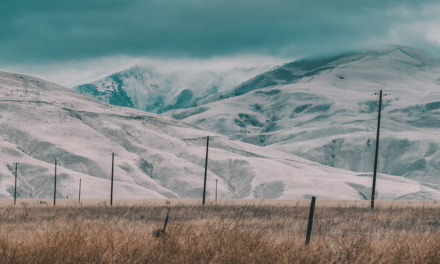The formation of the thirteen colonies is a tale of exploration, colonization, and the foundation of what would become the United States of America.
Each colony has its unique story, shaped by the diverse backgrounds of its settlers and the varied landscapes they encountered. This history outlines the significant milestones from the establishment of the first permanent settlement to the brink of revolution.
1607: Jamestown, Virginia
- Established: The Virginia Company of London founded Jamestown, North America’s first permanent English settlement.
- Significance: Marked the beginning of the British colonial presence in America.
1620: Plymouth Colony, Massachusetts
- Established: The Pilgrims, seeking religious freedom, founded Plymouth Colony in what is now Massachusetts.
- Mayflower Compact: Signed by the Pilgrims, it was one of the colony’s first governing documents, establishing self-governance.
1623: New Hampshire
- Established: Settled by John Mason and others as a fishing and trading colony in current New Hampshire.
- Significance: Known for its rich natural resources and as an early example of colonial self-governance.
1630: Massachusetts Bay Colony
- Established: Led by John Winthrop, Puritans established the Massachusetts Bay Colony.
- Significance: Became a major Puritan settlement, influencing the religious and political culture of the region.
1634: Maryland
- Established: Founded by Lord Baltimore as a haven for English Catholics in what is now Maryland.
- Act of Toleration (1649): Granted religious freedom to all Christians, an early step toward religious tolerance.
1636: Connecticut
- Established: Thomas Hooker and his followers settled Hartford, which later became part of the Connecticut Colony.
- Fundamental Orders (1639): Considered one of the first written constitutions in America.
1636: Rhode Island
- Established: Founded by Roger Williams, expelled from Massachusetts for his religious views.
- Significance: Known for its religious freedom and separation of church and state with prevailing still present in Rhode Island.
1638: Delaware
- Established: Originally settled by Swedish colonists as New Sweden.
- Dutch and English Control: Later, the Dutch and the English were taken over.
1653: North Carolina
- Established: Settled by Virginians moving south for more land.
- Significance: Became known for its agriculture and plantation economy.
1663: Carolina (later North and South Carolina)
- Established: King Charles II granted the territory to eight Lords Proprietors.
- Division: Split into North and South Carolina in 1712 due to administrative differences.
1664: New York
- Established: Originally New Netherland, it was seized by the English from the Dutch and renamed New York.
- Significance: Became a major trade and economic hub.
1664: New Jersey
- Established: Separated from New York after the English took control from the Dutch.
- Significance: Diverse population and early focus on religious freedom.
1681: Pennsylvania
- Established: Granted to William Penn by King Charles II as a haven for Quakers.
- Significance: Known for its progressive policies on religious tolerance and good relations with Native Americans.
1732: Georgia
- Established: Founded by James Oglethorpe as a debtor’s colony and buffer against Spanish Florida.
- Significance: Last of the original thirteen colonies.
Table of Contents
Significant Events and Developments
1619: First African Slaves in Virginia
- Arrival: First recorded arrival of African slaves in English America at Jamestown.
- Impact: Marked the beginning of institutionalized slavery in the colonies.
1675-1678: King Philip’s War
- Conflict: Between New England colonists and Native American tribes.
- Result: Significant loss of life and property, shaping colonial-Native American relations.
1689-1697: King William’s War
- Conflict: Part of a series of colonial wars between England and France.
- Impact: Influenced colonial military and defense strategies.
1692: Salem Witch Trials
- Event: Series of hearings and prosecutions of people accused of witchcraft in Massachusetts.
- Outcome: Led to the execution of 20 people and widespread hysteria.
1754-1763: French and Indian War
- Conflict: Between British colonies and French forces, with Native American allies on both sides.
- Result: British victory solidified control over North America but led to increased taxation on colonies to pay for war debts, setting the stage for revolutionary sentiments.
Fun Things to Do in the Historical Sites of the Thirteen Colonies
- Jamestown Settlement: Explore the living history museum and archaeological sites.
- Plymouth Rock and Plimoth Patuxet: Visit the iconic rock and living history museum to learn about Pilgrim life.
- Freedom Trail in Boston: Walk the historic trail to see significant Revolutionary War sites.
- Colonial Williamsburg: Experience life in the 18th century with reenactments and preserved buildings.
- Historic Philadelphia: Visit Independence Hall, the Liberty Bell, and other landmarks of American independence.
Q&A: Understanding the Thirteen Colonies
Q: What were the main reasons for the establishment of the thirteen colonies?
A: The colonies were established for various reasons, including seeking religious freedom (e.g., Massachusetts, Rhode Island), economic opportunities (e.g., Virginia, New York), and as strategic military and political locations (e.g., Georgia, Carolina).
Q: How did the economic activities of the colonies differ?
A: The New England colonies focused on shipping, fishing, and small-scale subsistence farming. The Middle colonies were known for their diverse agriculture and trade, while the Southern colonies had economies based on large plantations and cash crops like tobacco and rice.
Q: How did relations with Native Americans vary among the colonies?
A: Relations varied significantly, with some colonies, like Pennsylvania, maintaining relatively peaceful relations through fair treaties, while others, like Virginia and Massachusetts, experienced frequent conflicts and wars.
Q: What role did slavery play in the colonies?
A: Slavery was integral to the economies of the Southern colonies, particularly plantation agriculture. While it was also present in the Northern colonies, it was less central to their economic systems.
Q: What were the main factors leading to the American Revolution?
A: Key factors included increased British taxation and regulation following the French and Indian War, colonial resistance to British policies, and the growing desire for self-governance and independence.
Exploring the history of the thirteen colonies provides insight into the foundations of the United States and the diverse influences that shaped its development.





